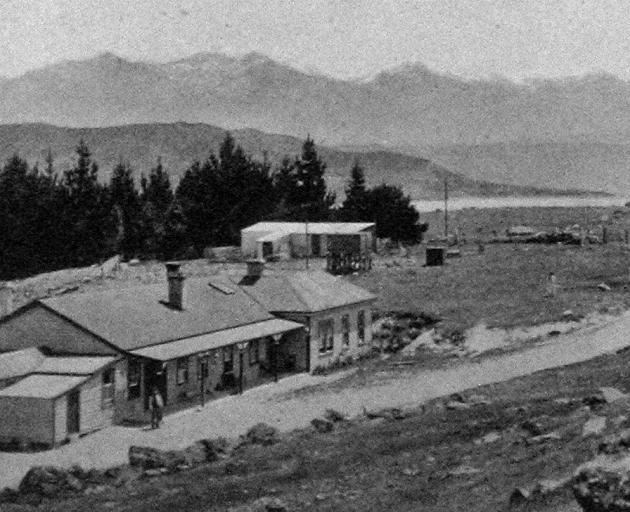
The delegates to the Peace Congress are already assembling in Paris. It is stated that the first formal meeting of the preliminary Inter-Allied Conference will take place to-morrow.
No very definite information has been conveyed as to the plan and programme of the Congress, or as to the order and method of procedure that will be followed.
Precedent will no doubt afford sufficient guidance in many directions, but we may take it for granted that finality has not yet been reached respecting various points of procedure which will require consideration by the delegates as a whole. Hence the necessity for the preliminary Inter-Allied deliberations.
Lawrence flooded
As a result of torrential rainfall on Tuesday, Ross place, the principal business street of Lawrence, was flooded to a depth of about three feet at its lowest point, opposite the Bank of New Zealand.
There was a very heavy downpour, lasting for about half an hour shortly after mid-day, and the weather then cleared till evening, when shortly after 7 o'clock one of the heaviest thunderstorms (accompanied with vivid flashes of lightning) experienced in the district for many years past, came on, and for a couple of hours or more the rain simply poured down in sheets.
The water channels were soon raging torrents. About 10.30 p.m. Hospital Creek, which has a large drainage area, overflowed, the surplus water pouring along Ross place, and within an hour it had risen to a height of over 3ft, flooding all the business places and private residences.
When things began to look serious the Mayor had the fire-bell rung as a warning, and as a result all the business people, with the exception of Mr W. T. Talboys (whose manager was in Dunedin), were able to get their goods above flood level.
Locating mines off NZ
Captain Hall Thompson stated to a North Island pressman that as a result of further information received from Germany, it was learned that 35 mines were laid off Cape Farewell. Of these 18 had been accounted for, and probably others had also been destroyed by coming ashore and exploding.
So bad had been the weather during the last two months that the trawlers had been able to put in only a few days' work. With the advent of fine weather, and the assistance of the Tutanekai, which was now being fitted up for mine-sweeping, the captain hoped that in three months, at the most, he would be able to raise the embargo on the port of Wanganui. In that time he hoped to locate the mines or satisfy himself that the danger was reduced to a minimum.
Elderly immunity
Striking proof of the almost general immunity of the old from scourge of influenza is given in the fact that not a single case occurred at either the Auckland Veterans' Home or the Costley Home.
At the former 30 old soldiers, mostly between 80 and 90 years of age, passed untroubled through all the long period of sorrow and suffering, immune from the deadly attack of the enemy which laid low so many thousands of the young and vigorous.
The same fortunate immunity was experienced by 270 aged men and women at the Costley Home. The place was closed to visitors, and the only cases which occurred were one or two among the staff.
- ODT, 17.1.1919
COPIES OF PICTURE AVAILABLE FROM ODT FRONT OFFICE, LOWER STUART ST, OR WWW.OTAGOIMAGES.CO.NZ












